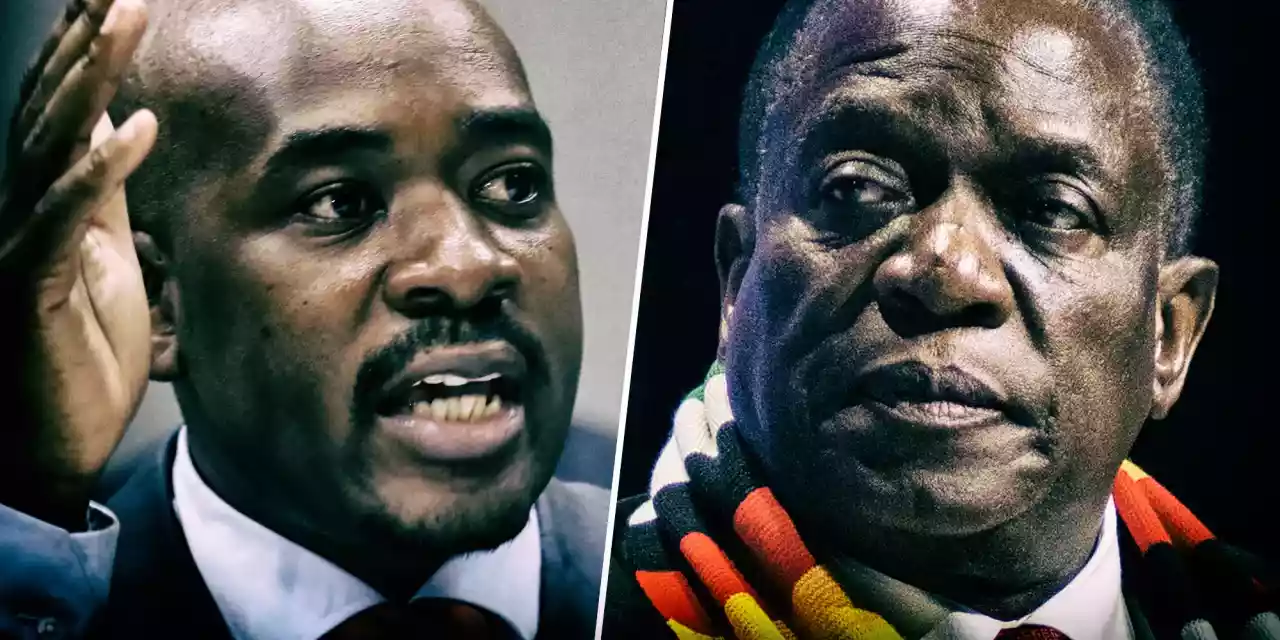
SINCE continued polarisation within Zimbabwe, and the possibility of polarisation within the Sadc will continue in the absence of a substantive dialogue, the Platform for Concerned Citizens has launched a petition which outlines steps towards resolving the crisis.
As with all elections since 2000, the 2023 Zimbabwe’s harmonised elections have ended in dispute. However, contrary to all previous elections, except 2008, these elections have resulted in dispute both internally and externally. Zimbabweans are clear that the elections were not free, fair or credible. But for the first time, African and other international observers are in agreement that the elections failed the test of best practice.
Bottom of Form
The one critical thing it was hoped these elections would achieve was no dispute, allowing the country to move on to resolving its economic problems and its international pariah status. As Joaquim Chissano, former president of Mozambique, said: “The crisis in the country is having terrible consequences for the region as Zimbabwe lies at the heart of southern Africa.”
However, the problem remains.
Not only is Zimbabwe itself in dispute, with the Citizens’ Coalition for Change (CCC) rejecting the election, together with Zimbabwean civil society and a huge section of the citizenry, but there are signs that there is a growing dispute within the Southern African Development Community (SADC) itself over the elections and what to do about it.
Dealing with the fallout from this election cannot lead to a simple binary position: accept it or reject it.
This outcome was entirely predictable, as we pointed out eight months ago, suggesting that Zimbabwe has reached a Lancaster House moment. The improbability that any election in the context of a securocrat state would resolve the Zimbabwean crisis is a point that we have made repeatedly since 2016: not even the coup and the belief that there was a new dispensation have changed this reality. The same point was made more recently.
- Why Maser CEO Suri thinks AfCFTA is a winner for start-ups
- Why Maser CEO Suri thinks AfCFTA is a winner for start-ups
- Promoting clean energy, natural gas and energy transition in Africa
- Promoting clean energy, natural gas and energy transition in Africa
Keep Reading
Dealing with the fallout from this election cannot lead to a simple binary position: accept it or reject it. The stakes for the country and the region are far too high, which was the primary motivation for the arrears clearance and debt relief process in Zimbabwe, and the decision to address the three main stumbling blocks to international re-engagement and economic stability: the economy, governance and land (property rights). It would seem probable that the strategy is now sunk – certainly arrested – by the major failure in governance that the election has demonstrated.
Furthermore, this cannot be a situation that is pre-empted by Zimbabwe, nor can the spirit of the SADC, reflected in the Organ on Politics, Defence, and Security, be ignored. Indeed, the whole notion behind the establishment of the organ was to deal with crisis and conflict within the region. The SADC report established that there is a crisis in Zimbabwe.
It was in recognition of all of this that the Platform for Concerned Citizens (PCC) launched a petition in the aftermath of the election. We do not pretend that the process and the indicators proposed in the petition are the only solution, but we are certain that continued polarisation within Zimbabwe, and the possibility of polarisation within the SADC, will continue in the absence of a substantive dialogue. Such dialogue is the modus vivendi in the SADC and Africa for resolving disputes: political problems require political solutions, not narrow legal determinations.
The petition, now signed by 65,880 people (and overwhelmingly by Zimbabweans at home and in the diaspora), outlined a series of steps towards resolving the crisis:
The establishment of an Eminent Persons Group, tasked with negotiating the establishment of a Transitional Government, composed of political parties and other major citizen groupings;
The negotiations must be broad-based, including political parties, civil society, churches, labour, women and other citizen groupings; and
The Transitional Government should set up with a clear and specific set of reforms that must be achieved.
The reform process should lead in time to an election beyond dispute nationally, primarily, but also without dispute regionally, continentally and internationally.
In essence, the proposal is very simple. Rather than foster dispute nationally, regionally, continentally and internationally, face the Lancaster House moment, and begin an internationally brokered dialogue on a solution that is acceptable to all Zimbabweans.
The SADC should mandate an Eminent Persons Group to begin the dialogue process with all stakeholders in Zimbabwe. We suggest an African Eminent Persons Group composed of Kgalema Motlanthe (SADC), Jakaya Kikwete (East African Community) and Olusegun Obasanjo (Ecowas) to lead this process, fully supported by the SADC. This will reflect the African Union broadly: eastern, western and southern.
This initiative will require the concerted (and united) efforts of the whole SADC community, especially the “reluctant hegemon”, as Adam Habib once termed South Africa in reference to its foreign policy.
The dialogue will undoubtedly be lengthy and difficult, and thus it is imperative that it begin as soon as possible, most importantly because the economic crisis in Zimbabwe requires international support, and it is probable that this could occur if the country as a whole was committed to a frank and honest dialogue.
- Ibbo Mandaza and Tony Reeler are co-conveners of the Platform for Concerned Citizens. They are the sponsors of the petition, which has been forwarded to the chair of the Organ on Politics, Defence and Security, as well as to the chair of the AU and the international community in general.








